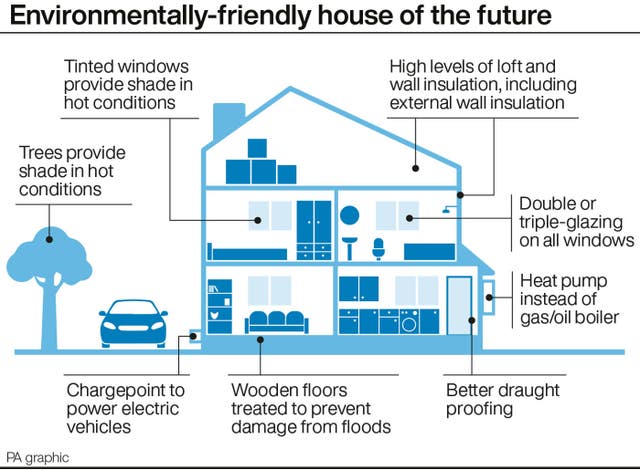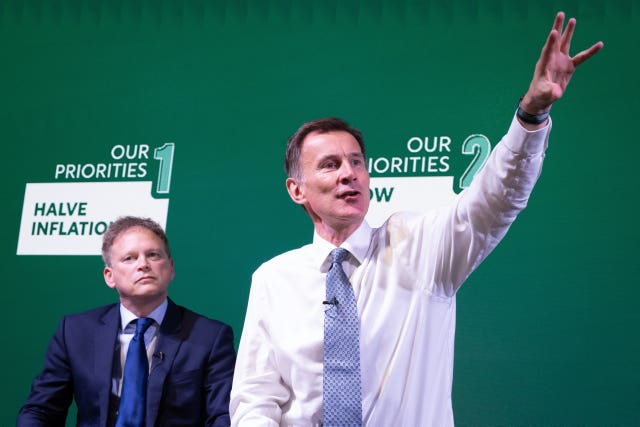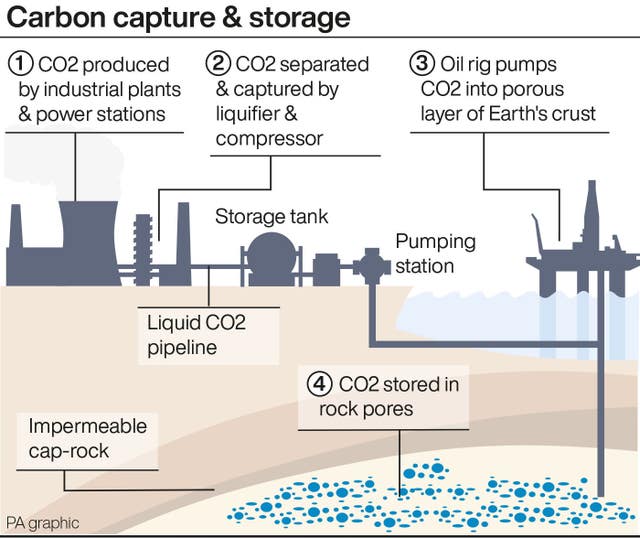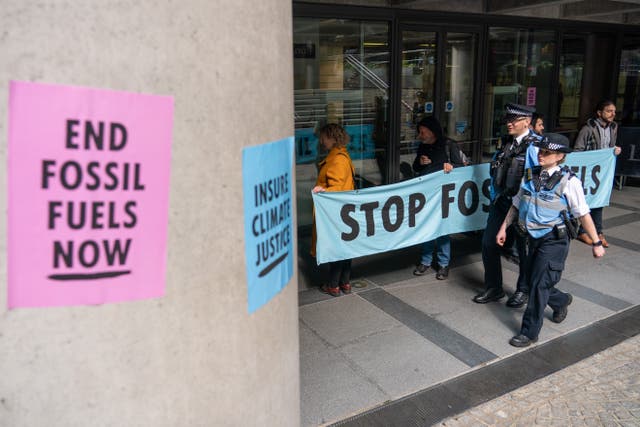Shapps insists homeowners will not be forced to rip out boilers under green plan
Grant Shapps said the shift away from gas to alternative ways of heating homes would take place over ‘the next decade or two’.

Energy Secretary Grant Shapps said the Government’s new green power strategy was not a “rip-out-your-boiler” plan, despite measures aimed at shifting households away from gas.
The plan confirms measures aimed at making it cheaper to buy and run a heat pump rather than a traditional gas boiler.
But Mr Shapps admitted he did not own a heat pump and insisted “we’re not forcing anyone to remove their gas boilers”.
The strategy confirms that the Government will set out plans during 2023-24 to “rebalance gas and electricity costs” – which could cut the cost of electricity, which can be generated cleanly, at the expense of gas.
Homes will move from gas to cleaner energy “over the next decade or two”, Mr Shapps said.
He told Sky News: “We all know that electricity can be a big way to decarbonise, but we also know these are big changes. So this is not a sort of rip-out-your-boiler moment.

“This is a transition over a period of time to get to homes which are heated in a different way and also insulated much better.”
He admitted “we’re in the low numbers still” of heat pumps, with around 42,000 installed last year and “there are technical issues that people are having to deal with in order to meet the switchover”.

Listing steps taken in his own home, including turning down the boiler flow temperature, Mr Shapps said: “I’m gradually doing things. I’m not sort of some eco-warrior in this. I just want to try and save money on my energy bills like everybody else.”
The Government is extending a scheme offering £5,000 grants towards heat pump insulation to 2028 instead of its previous 2025 cut-off.
The package has been criticised by some as offering little more than reannouncements of existing plans.
It comes as Chancellor Jeremy Hunt ruled out a British rival to the kinds of subsidies for green technologies offered by Joe Biden’s Inflation Reduction Act in the US.
The plan unveiled by Mr Shapps and Prime Minister Rishi Sunak to “power up Britain” involves support for carbon capture technology and offshore wind.
But it has been criticised by opposition figures and environmental campaigners.
The plan sees the Government stress its already-announced £20 billion investment in carbon capture technology and backing for new projects, as well as £160 million for port infrastructure to help expand offshore wind.
New green hydrogen production projects also feature prominently alongside plans for the establishment of Great British Nuclear.

More than £380 million will go towards improving the number of electric vehicle charge points while Mr Hunt will update the green finance strategy focused on attracting billions of investment.
Elsewhere, the Government is set to publish a consultation on measures to address carbon leakage, raising the possibility of the UK following the EU and introducing a carbon border taxes regime.

Mr Sunak said investment in renewables, nuclear energy and other sectors would boost jobs and create opportunities for British businesses.
Mr Hunt played down suggestions that the UK was trying to compete with Washington or indeed follow its lead.
Writing in The Times, he hit out at “massively distortive subsidies” and said that instead the UK would do things “the British way”.

“We are not going toe-to-toe with our friends and allies in some distortive global subsidy race,” he said.
“With the threat of protectionism creeping its way back into the world economy, the long-term solution is not subsidy but security.”
In the days leading up to the announcement, the Government dampened suggestions that Thursday would be a “Green Day” – instead emphasising the energy security element underpinning the strategy.

But campaigners and critics suggested that ministers had missed the chance to pursue a more radical green industrial strategy, with Friends of the Earth (FoE) labelling some of the announcements “lacklustre”.
Mike Childs, head of policy at FoE, warned: “Friends of the Earth successfully took legal action against the Government’s previous net-zero strategy because it failed to show how legally binding climate targets would be met.
“With these policies looking dangerously lacklustre and lacking on climate action, we will be combing through the detail of the amended strategy and are poised to act if ministers have fallen short once again.”
Professor Nick Eyre, of the University of Oxford, said: “The Government has missed an open goal here.
“The most effective and lowest cost measures to address energy security concerns are investment in renewable energy and energy demand reduction.
“These are precisely the same measures that the latest IPCC report shows are central to achieving net zero. Yet the Prime Minister, Chancellor and Secretary of State all fail even to mention the key role of energy saving.”
Labour also hit out at Mr Sunak’s administration over the strategy, highlighting the “glaring omissions” in the Government’s announcement.
Ed Miliband, the shadow climate and net-zero secretary, said there was “no removal of the onshore wind ban which is costing families hundreds of pounds on bills, no new investment for energy efficiency which could cut bills and imports, no response to the Inflation Reduction Act which could help Britain win the global race for clean energy jobs”.
He said: “What was billed with huge hype as the Government’s green day turns out to be a weak and feeble groundhog day of reannouncements, reheated policy, and no new investment.”
The Government’s plan included its response to Tory MP Chris Skidmore’s review into how the UK can reach net zero by 2050.
It said it is acting partly or fully upon 23 of the 25 recommendations made by Mr Skidmore in his January report.





